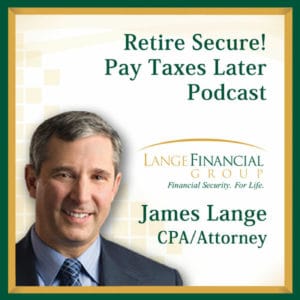Jim Lange: One of the problems that consumers face is the potential for conflicts of interest from the people who are giving them advice. Personally, I’m what’s known as a “fiduciary advisor,” which means I not only have the moral, but also the legal obligation to give the advice that I think is in my client’s, not my own, best interest. That is contrary to many, if not most, advisors who might have a fiduciary duty to their employer, not to their client. John Bogle has some important thoughts on conflicts of interest.
John Bogle: A good example is the security analysts of the mutual funds. They should be interested. If the management of a corporation that they follow research for is failing, they should be taking an initiative to get that management changed to vote either to change it by throwing out the board, the directors, whatever it might be, and they can do that. They have the power to do that, and they don’t do anything! They seem to be much more interested, the security analysts, in the price of the stock. That is to say, again, the speculative aspect of it. They want the company to give them earnings guidance. It makes the analysts look good when a company says “I’m going to earn 87 cents this year” and they earn 88, something like that. They want that guidance to be realized because if you get halfway through the year, or three-quarters of the way through the year, you start playing financial-engineering games and you write off things faster or more slowly, depending on, you know, which way you want the earnings to go. You really basically cannot trust, in a very fundamental sense, the earnings estimates produced by these corporations.
So that’s why I indict the accountants. Where the heck are they? And let me give you one example of this: These corporations, all in their annual report, they have to report on what earnings they expect from the pension plans that they oversee for their employees, and virtually unanimously, they report 8 percent. That’s kind of what a historical return might have been, but they ignore the fact that history is meaningless. History is yesterday. What’s important in projects for the next 10 years or so, what the pension plan is going to earn, along with the intermediate-term government bond yields less than 2 percent. Don’t forget, we got to get to 8 percent here, and a reasonable return for stocks might be 7 percent. Then you take out the costs of investing. One of the fascinating sub facts is that all these projections are based on stock-market returns without recognizing the obvious. We don’t get the stock-market returns. We get the stock-market returns, less cost, and they totally ignore cost. I mean it’s shocking. I think it’s fair to say there’s not a prayer that these companies can earn that 8 percent. Their shortfall is going to be great, they’re going to have to put up a lot more funding for the pension plan, and it’s a very troubled part of American business.
Jim Lange: And I guess what happens when you understate the pension liability is that you are, in effect, overstating assets, understating liabilities, that would cause a company to be valued higher than it should?
John Bogle: That’s the trick! Corporations have actually done this. If you got a little earnings shortfall, you say “You know what? I think it’s reasonable to assume that my pension plan is going to earn not 7 percent, but 8 percent,” and all of a sudden, you made half a billion dollars or something.
Jim Lange: And I guess it’s just not corporations. I think we’re seeing that at the local, state, and federal government.
John Bogle: The federal government is not that much of a problem. Certainly, the state and local governments are. They’re using the same 8 percent before the costs of investing, before thinking about current interest rates. I mean, today’s interest rate on a bond has basically a 90-percent-plus probability of being the actual return that bond will deliver you over the next 10 years. Not very surprising because all of the return on a bond comes from interest, and the interest doesn’t grow. You’ve got a little contract there to get your coupon twice a year for the next 10 years, and the bond will then be if you’re lucky, retired at par. So, there’s no extra long-term difference. All you have to do is know the yield. So, we know what the bond portfolio’s going to earn and they seem to ignore all that. So, it’s a very, very games-playing, manufacture the numbers kind of game that the auditors, which is where we started here, ought to say, “Whoa!” Now, they may say, “We don’t have any responsibility for that.” What are they there for? What are they there for? You know, if it’s true that they don’t have any responsibility, they better take some responsibility because the corporate management are gaming this number.

